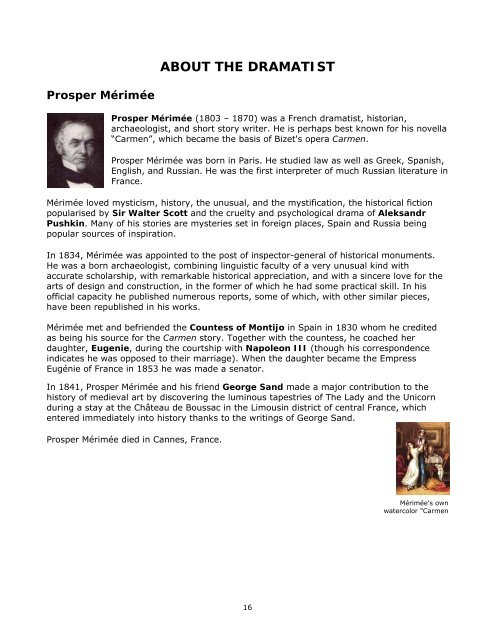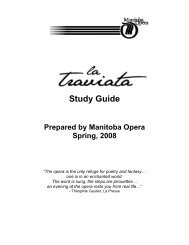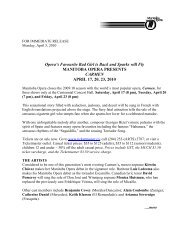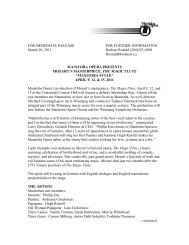You also want an ePaper? Increase the reach of your titles
YUMPU automatically turns print PDFs into web optimized ePapers that Google loves.
Prosper Mérimée<br />
ABOUT THE DRAMATIST<br />
Prosper Mérimée (1803 – 1870) was a French dramatist, historian,<br />
archaeologist, and short story writer. He is perhaps best known for his novella<br />
“<strong>Carmen</strong>”, which became the basis of Bizet's opera <strong>Carmen</strong>.<br />
Prosper Mérimée was born in Paris. He studied law as well as Greek, Spanish,<br />
English, and Russian. He was the first interpreter of much Russian literature in<br />
France.<br />
Mérimée loved mysticism, history, the unusual, and the mystification, the historical fiction<br />
popularised by Sir Walter Scott and the cruelty and psychological drama of Aleksandr<br />
Pushkin. Many of his stories are mysteries set in foreign places, Spain and Russia being<br />
popular sources of inspiration.<br />
In 1834, Mérimée was appointed to the post of inspector-general of historical monuments.<br />
He was a born archaeologist, combining linguistic faculty of a very unusual kind with<br />
accurate scholarship, with remarkable historical appreciation, and with a sincere love for the<br />
arts of design and construction, in the former of which he had some practical skill. In his<br />
official capacity he published numerous reports, some of which, with other similar pieces,<br />
have been republished in his works.<br />
Mérimée met and befriended the Countess of Montijo in Spain in 1830 whom he credited<br />
as being his source for the <strong>Carmen</strong> story. Together with the countess, he coached her<br />
daughter, Eugenie, during the courtship with Napoleon III (though his correspondence<br />
indicates he was opposed to their marriage). When the daughter became the Empress<br />
Eugénie of France in 1853 he was made a senator.<br />
In 1841, Prosper Mérimée and his friend George Sand made a major contribution to the<br />
history of medieval art by discovering the luminous tapestries of The Lady and the Unicorn<br />
during a stay at the Château de Boussac in the Limousin district of central France, which<br />
entered immediately into history thanks to the writings of George Sand.<br />
Prosper Mérimée died in Cannes, France.<br />
16<br />
Mérimée's own<br />
watercolor "<strong>Carmen</strong>








